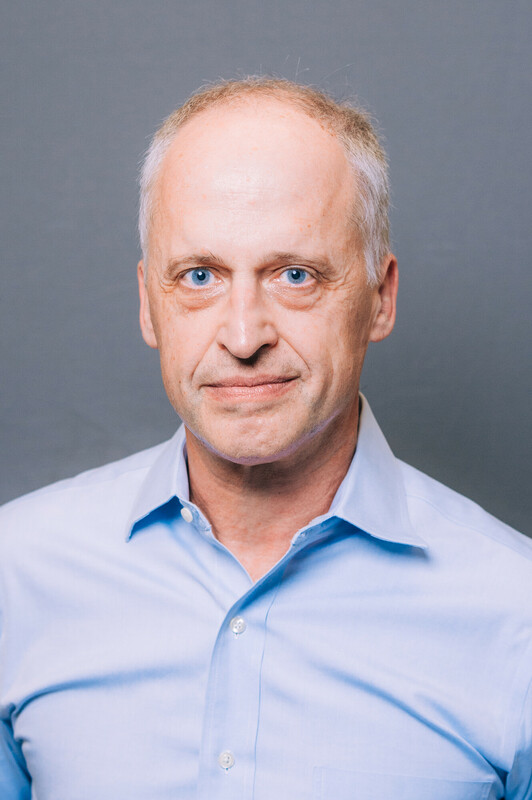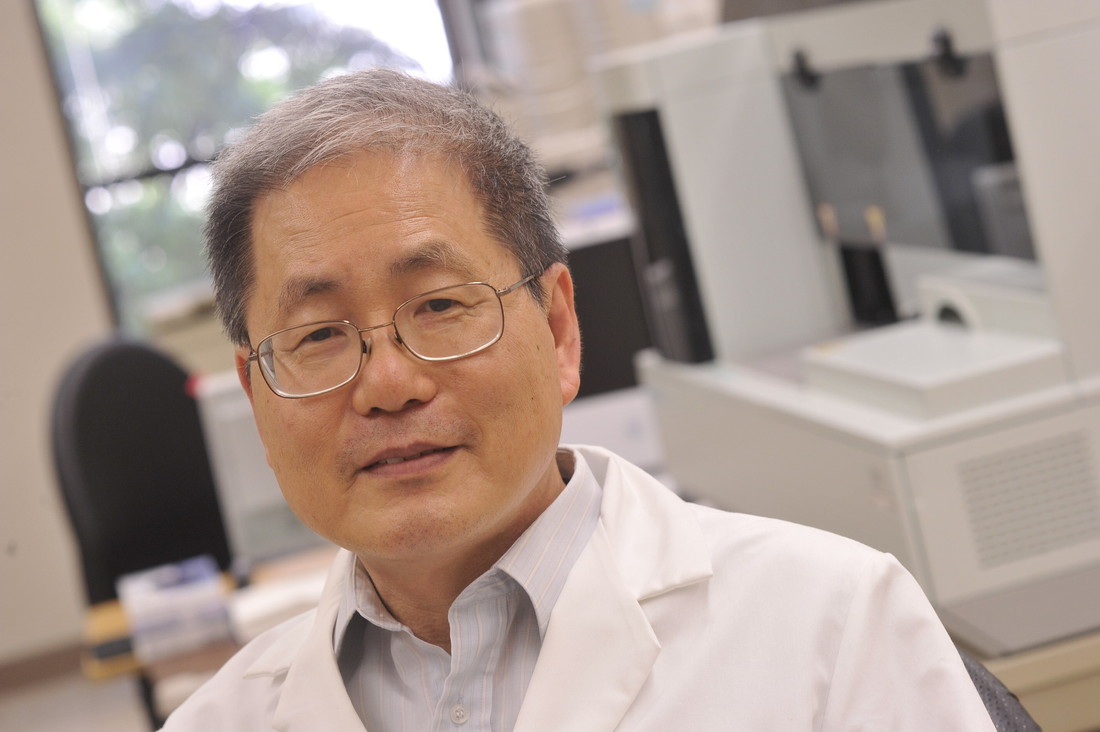 Michael Niederweis, Ph.D.,
Michael Niederweis, Ph.D., Photography: Lexi Coon
Inventions that flowed from basic bacterial research have led Michael Niederweis, Ph.D., and Moon Nahm, M.D., to be named senior members of the National Academy of Inventors.
Niederweis, a professor in the University of Alabama at Birmingham Department of Microbiology, studies the unusual outer membrane proteins of mycobacteria.
During this work, he discovered the channel protein MspA, which allows the influx of small, hydrophilic molecules across the outer membrane of Mycobacterium smegmatis. His lab subsequently modified MspA to translocate DNA, and this engineered protein was then used to demonstrate that sequencing of DNA with nanopores is feasible. This technique is fast and inexpensive, and it was chosen as the Method of the Year 2022 by Nature Methods because it enables a better understanding of genomes, epigenomes and transcriptomes. To date, the MspA nanopore is the most efficient nanopore in existence for these applications.
Niederweis’ pioneering work has been published in more than 120 research papers, and it opened a new field in mycobacterial research, enabling new approaches for the development of therapeutics and vaccines to treat and prevent tuberculosis.
Nahm, a professor emeritus in the UAB Department of Medicine Division of Pulmonary, Allergy and Critical Care Medicine, has long studied Streptococcus pneumoniae pathogenesis and pneumococcal vaccines. Along the way, he has discovered many new Streptococcus pneumoniae types, developed an accurate way to measure pneumococcal antibody levels and invented the multiplexed opsonophagocytosis assay, which made possible the measurement of pneumococcal antibody function.

Photography: Steve WoodNahm’s accomplishments have greatly improved the ability to design and produce pneumococcal vaccines, which enabled affordable pneumococcal vaccine production for the world. In addition, he has helped the World Health Organization draft a guideline for developing new pneumococcal vaccines, wrote the World Health Organization ELISA test protocol and is the director of a World Health Organization Reference Laboratory for Pneumococcal Serology, which has trained many scientists from all over the world.
Nahm’s inventions of technologies and intellectual properties are important for pneumococcal vaccine production, and they have been licensed to numerous companies and academic institutions.
The 95 inductees of the 2023 class of Senior Members of the National Academy of Invention are honored for remarkable innovations that have produced technologies leading toward real impact on the welfare of society. This year’s group has been named as inventors on more than 1,200 U.S. patents, including seven by Nahm and 10 by Niederweis.
The National Academy of Inventors was founded in 2010 as a member organization comprising U.S. and international universities, and governmental and nonprofit research institutes. Its 4,000 members and fellows span more than 250 institutions worldwide. The academy recognizes inventors with patents issued from the U.S. Patent and Trademark Office, and it strives to enhance the visibility of academic technology and innovation, encourage disclosure of intellectual property, educate and mentor innovative students, and translate the inventions of its members to benefit society.
At UAB, Microbiology and Medicine are departments in the Marnix E. Heersink School of Medicine. Niederweis and Nahm will be honored at the “How to Launch a Startup” panel discussion at the Hill Student Center on April 21, sponsored by the Bill L. Harbert Institute for Innovation and Entrepreneurship.
